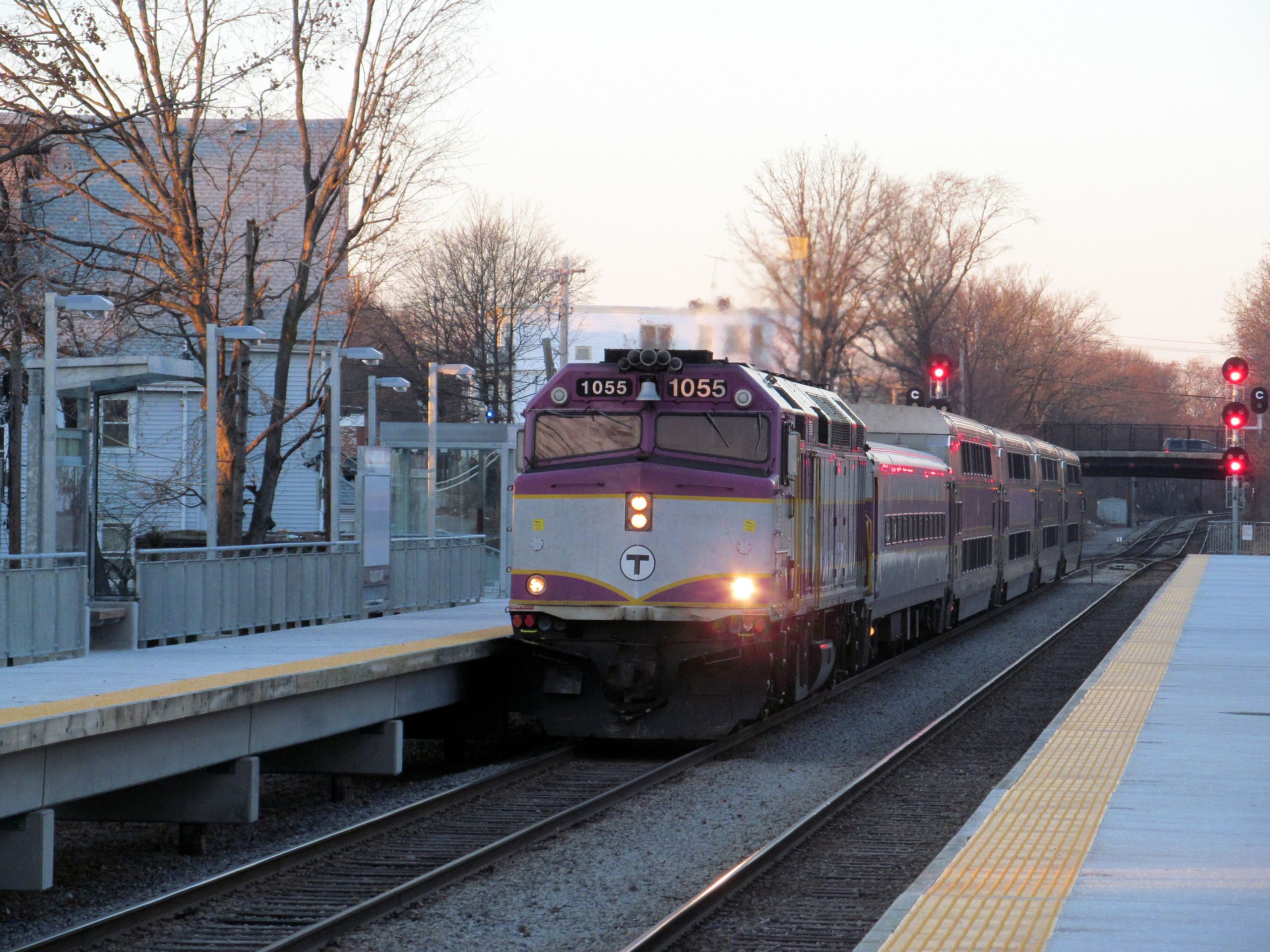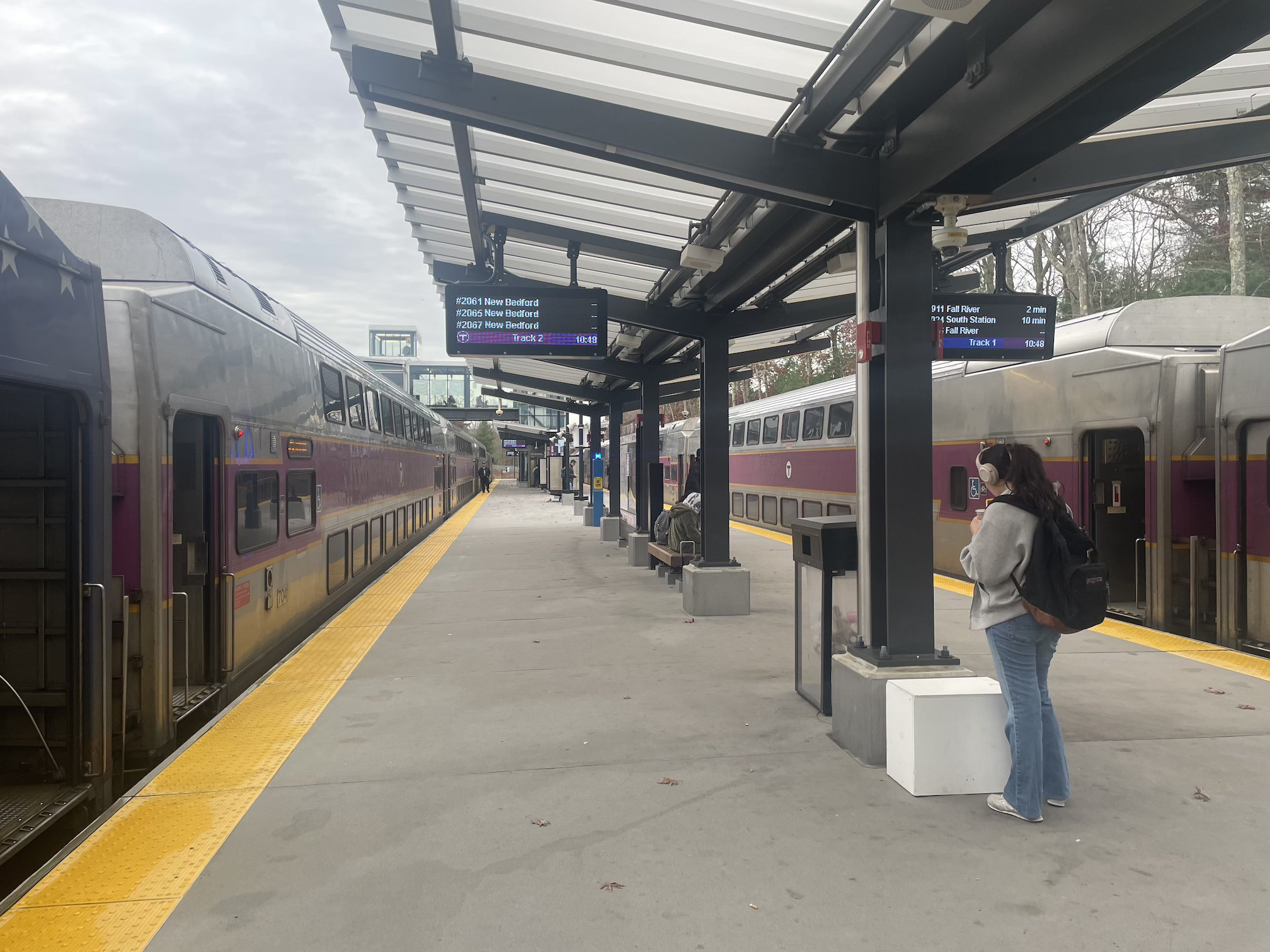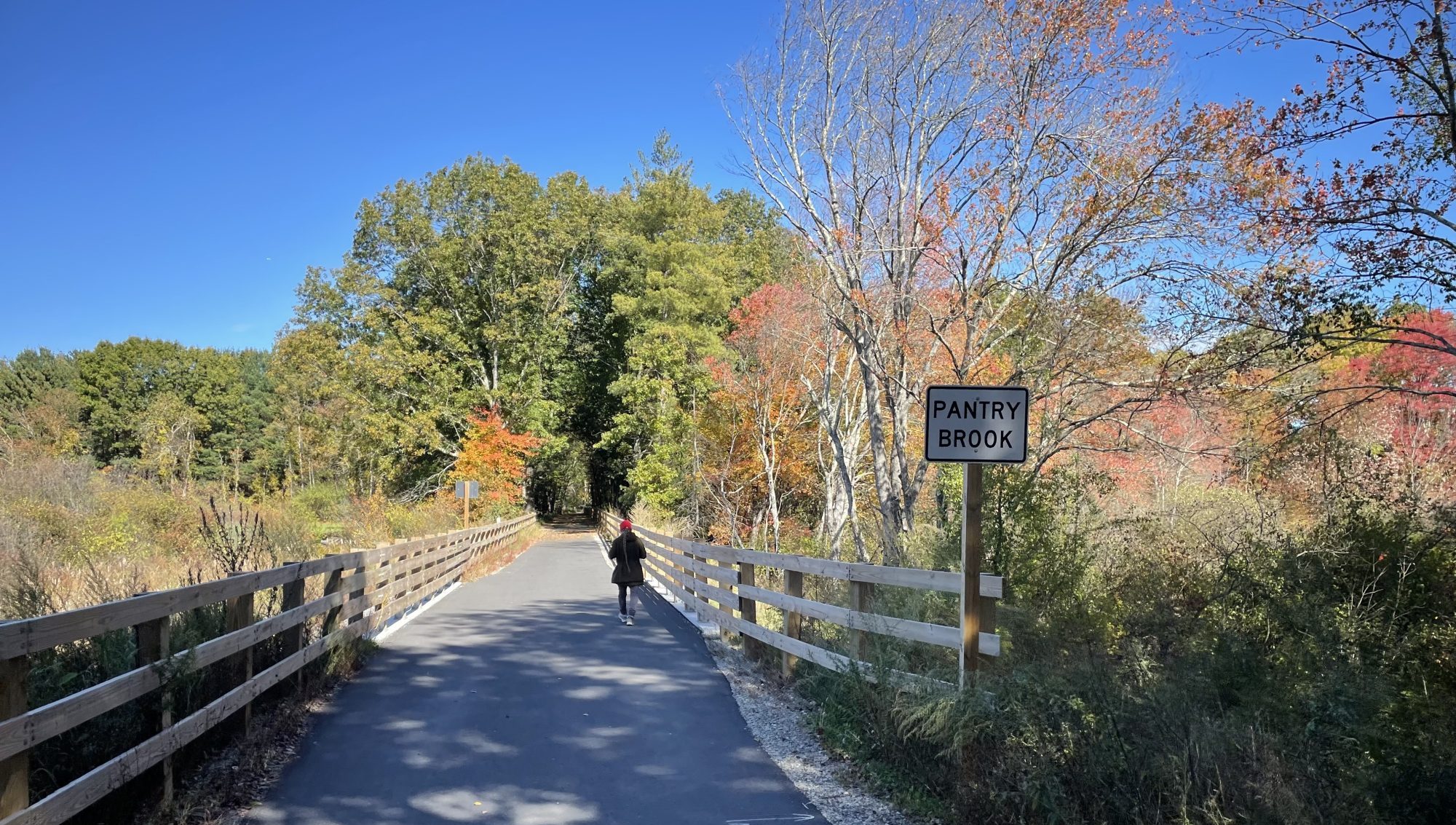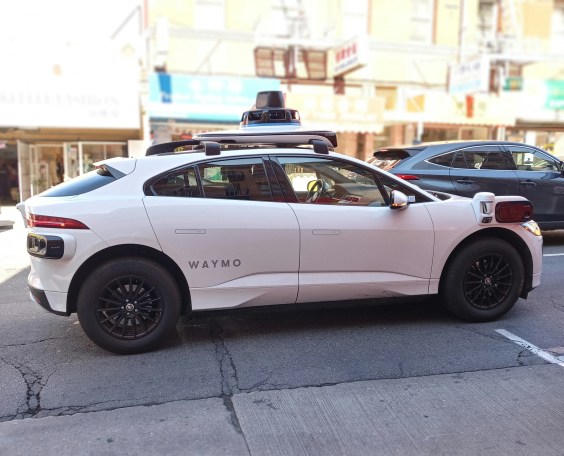The uncertainties of planning the region's transit future dominated the agenda at Monday's MBTA Fiscal and Management Control Board hearing, with discussions of the T's bleak budget outlook and proposals to pivot the T's service to better serve the "essential workers" who have been most dependent on transit this year.
Towards that end, T officials announced a new commuter rail schedule for November that will de-emphasize rush-hour service in order add more mid-day trains on key lines.
The goal is to serve more workers who don't necessarily work 9-to-5 shifts and broaden the customer base beyond the downtown office workers who are now mostly staying at home. The new schedule also aims to bring better service to nearby environmental justice communities, with more trips being added to the Fairmount Line, to Brockton, and to Lynn.
Mid-day trains in Lynn will arrive every 30 minutes starting in November (up from every 30 to 90 minutes last year), and trains on the Fairmount Line will run every 45 minutes (up from every 60 minutes last year).
Trains to the Brockton Area Transit bus hub on the Middleborough Line will run every 60 to 70 minutes, up from every 1.5 to 2 hours last year. Currently, one of the Brockton bus system's busiest bus lines is an express bus between Brockton and the Ashmont T station; T officials expressed hope that the new commuter rail service could relieve crowding on that bus and the Red Line while also providing a more direct route between the two cities.
In a separate agenda item, MBTA staff also began a discussion about how other transit services may need to adapt next year – not only to address changing travel patterns in the wake of the pandemic, but also to cut costs in the face of dire budget forecasts.
T staff discussed a framework through which every MBTA route will be evaluated and prioritized depending on ridership, land use, and the demographics of nearby neighborhoods, with emphasis on historically marginalized communities and areas with high numbers of car-free households.
That prioritization process is intended to preserve or even enhance transit services in high-priority areas, but it could also result in service cuts or longer rides for some riders, T officials warned.
"Our goal for recovery is not necessarily to just get ourselves back to the network we had before," explained Laurel Paget-Seekins, the T's Assistant General Manager for Policy, "but to build the foundation for the network we need for the future, to really power an equitable and sustainable recovery for Massachusetts."
In order to make service changes in the next fiscal year, which starts in July, those potential service cuts will be discussed in greater detail in the next FMCB meeting on September 21.
Other items of interest from Monday's board meeting:
- There was some good budget news from higher-than-expected ridership this summer, insofar as fare collections weren't quite as low as budget planners had expected a few months ago. In July, the T collected $10.6 million in fares, $4.5 million more than the agency's budget projections. That's still only 17 percent as much as the T collected in July 2019, but any additional money they agency collects over the course of this year will help cushion the blow of budget cuts when federal CARES Act funding runs out next summer.
- Chief Engineer Erik Stoothoff briefed the board on the disappointing results from the agency's electric bus pilot project, which has been testing the performance of five battery-powered buses for the past 12 months. Stoothoff called the technology "promising," but said that "based on the technology we're using right now, the ability for those buses to provide the service that we require of them today is just not quite up to what we need." Stoothoff elaborated that the buses, which operated on the Silver Line routes, had an average range of 60 to 110 miles per charge before they needed to retire for a 6- to 8-hour recharge at the Southampton bus garage. But he also acknowledged that battery technology is improving constantly, and that the technology could be ready for widespread integration in the bus fleet within 3 to 5 years. "We are designing and planning for the Quincy bus garage (tentatively scheduled to open in 2024) to be able to be converted to a battery-electric supporting facility," said Stoothoff.






